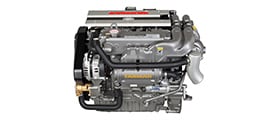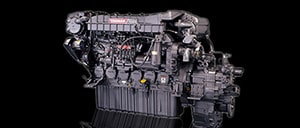




Profile
JUN NISHIKAWA, Cerezo Osaka, 19 years old. At Toko Gakuen High School in Kanawgawa, he wore the uniform number 10, the same number worn by Shunsuke Nakamura who is one of the star player of former Japan national football team, and took 2nd place in the All Japan High School Tournament as a sophomore and won the tournament in his senior year. He won the Under 16 Asian Championship and was named MVP. In the following U-17 World Cup, he scored two goals and provided two assists in four games, and Jun Nishikawa's name became known worldwide.
※Interviewed online on May 29, 2020.
JUN NISHIKAWA, Cerezo Osaka, 19 years old. At Toko Gakuen High School in Kanawgawa, he wore the uniform number 10, the same number worn by Shunsuke Nakamura who is one of the star player of former Japan national football team, and took 2nd place in the All Japan High School Tournament as a sophomore and won the tournament in his senior year. He won the Under 16 Asian Championship and was named MVP. In the following U-17 World Cup, he scored two goals and provided two assists in four games, and Jun Nishikawa's name became known worldwide.
※Interviewed online on May 29, 2020.

The world focuses on the performance that a young footballer pursues.

In the U-17 World Cup match against Senegal, Nishikawa entered the game midway, and when he received the first pass, he run past the opposing DF and scored brilliantly. His ability to change the flow of the game and to make the right decision come from his characters.
He has just started his professional career this year. He already attracts the attention of international clubs. And he is going to prove his potential by his performance. Unfortunately, he finished both the opening game and the cup competition on the bench. His challenge has just begun in a tough world where players can come and go before you know it. Nishikawa will tell us about his view.
He has just started his professional career this year. He already attracts the attention of international clubs. And he is going to prove his potential by his performance. Unfortunately, he finished both the opening game and the cup competition on the bench. His challenge has just begun in a tough world where players can come and go before you know it. Nishikawa will tell us about his view.
- Q:This is your first season as a professional. How is your training going at Cerezo Osaka?
- I'm satisfied with the way I played in pre-season training camp. I need to pay more attention to each and every play. Coach Rotina places a lot of weight on defense plays in the aggressive style of Cerezo Osaka, so defense is something I need to work on. I thought he was the strongest coach I've ever met, especially in his instructions for positioning. While the coach trusts precise players, it is impossible to position myself perfectly for the entire 90 minutes. We have to make corrections in every game. Improving my positioning skill has been a strong focus under Coach Rotina.
- Q:What have changed from high school team to a professional one?
- I need to increase the intensity of my plays even more. Of course, the professional world is very different from high school football. Up until last year, I was aware of that difference in the game when I went back to high school practice after participated in Cerezo's training, but even then, I got right back the high school style as I was used to it. It was difficult to keep it up even I knew I should. Now that I'm in a new environment where I can focus on football as my career, I need to get better and stronger. On top of that, I train thinking about how to express my own qualities and how to create stability that is second to none, even among experienced players.
Nishikawa has made goals and victories in high school and national youth teams. And now, of course, there is a whole another world beyond the results that Cerezo Osaka is pursuing.

- Q:Are there any players in Japan or the world that you are watching?
- I don't have any particular player that I admire, but Bale of Real Madrid and his plays are good example for me. He is also lefty, and I refer to his play in terms of dribbling speed and shooting.
I want to be an active player in the world. So, I'm just going for that goal. It's probably something I've been working on for a long time.
He has already played against the world's best national teams since his high school years and he is eager to compete in the Tokyo Olympics. He talks about his three years of high school making great success as an individual and growth as a team.

He found the perspective of his role in the team in the midst of the competition for a position.

While many players are promoted from the youth academy to become professionals, Nishikawa went from high school football team to professional.
- Q:Why did you choose to play in high school instead of youth clubs?
- Whatever you choose, there are definitely advantages and disadvantages. Would it be good or bad if I go this or that way? I'm the type of person who thinks a lot about things like that. That is my process when I come to a decision. First of all, I thought that I would be able to share my school life with my teammates and practice a lot since I would go directly from school to practice. Besides, I thought high school football could be rough and unsophisticated and good for me to grow in those areas of toughness that I was lacking.
- Q:You chose high school football team as a good environment for you to grow. How was it?
- To be honest, I thought I would start playing right away. But I was benched. For the first time in the second half of the year, I was picked as a replacement for an injured player. I thought that was the only chance I had, so I worked hard, but I couldn't play so well, and it was took me several games that I finally showed my ability.

- Q:Why do you think you were not picked first?
- I think I was lacking the perspective of what I can bring to the team in the game. After I realized it, I decided to become a player who makes decisions in the situations for the team. From that point on, I was very conscious of how I should position myself.
Also, if I didn't bring out my best in training, I wouldn't be able to play well in games. So, I was very conscious of my preparation. It didn't go well at first, and I was quite conflicted, but it was good that I worked hard and maintained my motivation If I got sulky or upset in situations where things didn't go well. When I felt down, I listened to music to lift my spirit up.
In the championships in his senior year, he was in tears in the preliminary finals. Nishikawa decided to be a player who makes decisions in the situations for the team. He regrets that he was unable to fulfill this role in high school, but he promised to learn from his experience and make it to the professional world. He was always in the spotlight in high school and was invited to train with Leverkusen in Germany as a sophomore. He practiced every day to see what was right for him. Let’s hear why Nishikawa choose to join Cerezo Osaka out of all the offers he received.

If you know exactly where you want to be,
trust your decision.
trust your decision.

Nishikawa cited defense, not offense. In modern football, importance of defensive play is getting high, and it was important for him to be in an environment where he learns the tactics of Coach Rotina, who achieved defense with the lowest conceded rate in the J1 League last season, and set a global standard of football.
- Q:How did you grow since joining Cerezo?
- I think the reason why Cerezo fewest goals conceded in the league last season was because of their good defensive positioning. I have learned a lot from Coach Rotina in terms of thinking about my defensive position since joining Cerezo, and grown in terms of the timing of my offense, the process, and the accuracy of my dribbling, which are my strengths.
By the way, I played against Cerezo Youth when I was in the eighth grade. I came on in the middle of the game when we were losing 1-2 and scored two goals to turn the game around. That game led to me to the national youth team trainings and matches, and I started to get noticed. From the time we were losing, I had been preparing for the game as if I was going to come on and score two goals, and the result came as I had hoped. With the same mentality of that game, I can still do well in any situation. - Q:Do you have something say to the challengers out there?
- People often look at me and say, "Why are you going that way? When I chose to play in high school, people told me that is a little unusual since young players usually go on to play for club youth team. But when I find the right answer for me after thinking about it, I trust myself like this is it! Once you've decided on the direction you want to go, don't be afraid and just take on the challenge.
No matter what choices Nishikawa will make, what preparations he will take, and what results he will bring, he always scores! We are looking forward to seeing him go for goals again and again.
































